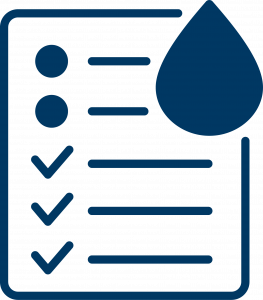GCG Oncomine Comprehensive Assay Plus (TMB/MSI)
- Test Code: ON124 / RNA included
- Test Code: ON125 / RNA excluded
Test Description
GCG Oncomine Comprehensive Assay Plus (TMB/MSI) is a comprehensive test designed to aid in the treatment decision-making process for various malignant solid cancers, including gastric cancer, lung cancer, colon cancer, breast cancer, ovarian cancer, melanoma, gastrointestinal stromal tumor, cerebral spinal cord malignancies, childhood neuroblastoma, and unknown primary cancer. The test involves the extraction of DNA and RNA from tumor tissues and FFPE specimens, followed by the analysis of mutation information in approximately 400 genes.
The panel provides insights into different types of genetic alterations, including SNV, small indels, copy number variants, and fusions. Additionally, it assesses the TMB score and MSI status, which offer additional information for treatment considerations. It’s important to note that when reporting the results, only mutations classified as tier 1 and tier 2 are reported, while tier 3 and tier 4 mutations are not included in the report.
By analyzing a broad range of genes and genetic alterations, this test aims to provide valuable information to guide treatment decisions, improving the chances of successful outcomes for patients with solid cancers.
Ordering information
- Turnaround time: 14 Days
- Specimen: FFPE slides
- 10 unstained sections from one block (10 μm x 10 sections) & H&E 1 slideTissue size : 4 mm x 4 mm
⚠ The pathology report should be enclosed with samples.
Assay information
- Target Region: 411 genes
- Hot Spot (165 genes), CDS (227 genes), CNV (127 genes),
- RNA fusion (49 driver genes, Detectable RNA Fusion isoform numbers: 1,311) * OPTIONAL
- TMB(Tumor Mutation Burden), MSI(Micro Satellite Instability)
- Target Enrichment Method: Amplicon-based assay(Oncomine Comprehensive Plus)
- Massively Parallel Sequencing: Ion S5
- Bioinformatic Pipeline: Oncomine Comprehensive Plus – w.2.5 – DNA – Single Sample
- Reference Genome GRCh37/hg19
Result

The test results will be provided according to the designated TAT. Review the sample report to see how the results are structured.
Limitations
- This test was performed using sequencing analysis and can detect SNP and small-indel variants within the analyzed region. The test cannot detect any variants in the region not covered by the test.
- The limit of detection for SNV and small-indel variants is approximately 5%.
- The detection rate of certain regions such as homopolymer and repeat regions may be lower due to limitations of the DNA sequencing method, and certain target regions may have lower coverage.
- The detected variants in this test are not confirmed by Sanger sequencing, ddPCR, or other confirmation methods.
- This test does not distinguish between germline and somatic variants. If the variant allele frequency of the mutation is close to 50% or 100%, the possibility of germline variant cannot be excluded.
- The variants detected in this test are classified into four stages (tier 1~4) according to the 2017 JMD guideline, and tier 4 variants are not reported.
- If the MAPD (Median of the Absolute values of all Pairwise Differences) score, a QC index for CNV calling, exceed 0.5, CNV analysis will not be performed. If the MAPD score exceeds 0.3, the reliability is considered low.
- For CNV analysis, only copy number gain is reported. The detection limit of copy number gain is about 4 copy gain.
- MSI status is reported as MSI-High or MSS. If the 76 MSI biomarkers are not covered enough, MSI status may be reported as no call or QC fail. Validation of MSI status from the manufacturer, using 192 samples, showed sensitivity of 96% and specificity of 99%.
- TMB score is the number of mutations detected per 106 base pairs. The classification for TMB-low and TMB-high is not yet defined.
Verifying more specific details about the Test
